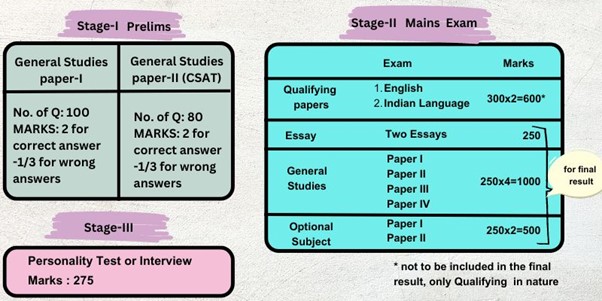How can I prepare for UPSC?
Union Public Service Commission Civil Service Examination (UPSC-CSE) is a three staged Exam conducted by Union Public Service Commission every year
in the month of May or June. This exam is considered as the most difficult exam in the country. The process of the exam makes it difficult. At stage one
UPSC conducts Prelims exam which has two parts, part one contains general studies part in which history of India, Indian Polity, Constitution, geography and
Current Events of national importance etc. are included and as a part two CSAT exam is there which contains comprehension, maths and reasoning etc.
At stage two, those who clear the prelims exam appears in the mains exam. This stage of Examination contains 9 descriptive papers out of which two are
only qualifying papers and only marks obtained in 7 papers are considered in the final result.
At stage three, a personality test is conducted by UPSC at the Union Public Service Commission office at Dholpur House in Delhi.
Interview is taken by the panel chaired by the chairman of the Union Public Service Commission.

As this exam is divided into three stages we will divide our Strategy for UPSC into three stages also and discuss how to prepare for UPSC at all three stages.